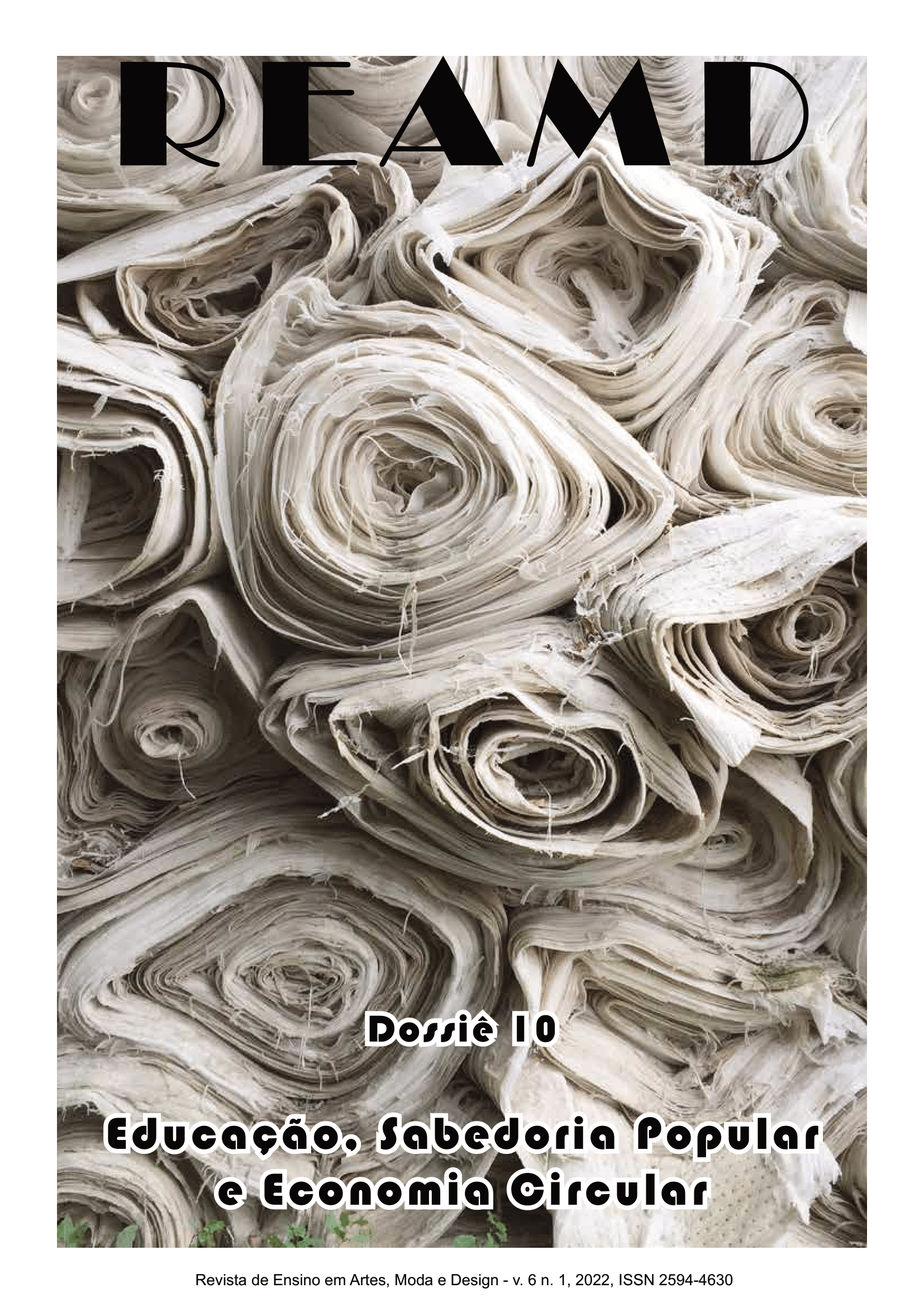The challenges and curricular possibilities of the Fashion Design Course at the Federal University of Ceara, in front of Covid-19
DOI:
https://doi.org/10.5965/25944630612022e0123Keywords:
Curriculum, Teaching Methodologies, Design-Fashion, Covid-19Abstract
The curriculum of the Design-Fashion course at the Federal University of Ceara (UFC) is the object of constant reflection both by its Collegiate and by the part Structuring Teaching Nucleus (NDE), which considers the student, the professor, the institution, the market, the socio-political scenario and the country's regulatory bodies. If thinking about the curriculum in its multiple dimensions is already a challenge in nature, the difficulties increase when this reflection is urgently required, in the face of a pandemic that affects us in all dimensions. This article aims to present the challenges and curricular possibilities of the Design - Fashion course at UFC against Covid 19. Methodologically, this is an action research that started with the bibliographic review around the categories curriculum and heigher education and was taking shape with the results obtained in field research with the teaching and student bodies. The data obtained guided the proposals for action that seemed more appropriate to the context of the pandemic.
Downloads
References
FREIRE, Paulo. Pedagogia do Oprimido. 17 ed. Rio de Janeiro: Paz e Terra, 1987.
FREIRE, Paulo. Pedagogia da Autonomia. São Paulo: Paz e Terra, 1996.
GIROUX, Henry e SIMON, Roger. Cultura Popular e Pedagogia Crítica: a vida cotidiana como base para o conhecimento curricular. IN: MOREIRA, Antonio Flávio e SILVA, Tomaz Tadeu (orgs). Currículo, cultura e sociedade. 5 ed. São Paulo: Cortez, 2001.
GÓMEZ, A. P. O pensamento prático do professor: a formação do professor como profissional reflexivo. In: NÒVOA, A. (Org.). Os professores e a sua formação. 3. ed. Lisboa: Publicações Dom Quixote, 1997.
SACRISTÁN, Gimeno. Currículo: uma reflexão sobre a prática. Porto Alegre: Artmed, 2000.
Downloads
Published
How to Cite
Issue
Section
License
Copyright (c) 2022 Emanuelle Kelly Ribeiro da Silva, Cintya Tavares Marques de Queiroz, Francisca Raimunda Nogueira Mendes

This work is licensed under a Creative Commons Attribution 4.0 International License.
- Authors retain copyright and grant the journal the right of first publication, with work simultaneously licensed under the Creative Commons Attribution 4.0 International License, which allows for:
1. Share — copy and redistribute the material in any medium or format for any purpose, even commercially.
2. Adapt — remix, transform, and build upon the material for any purpose, even commercially.
The licensor cannot revoke these freedoms as long as you follow the license terms.Under the following terms:
1. Attribution — You must give appropriate credit, provide a link to the license, and indicate if changes were made. You may do so in any reasonable manner, but not in any way that suggests the licensor endorses you or your use.
2. No additional restrictions — You may not apply legal terms or technological measures that legally restrict others from doing anything the license permits. -
Plagiarism, in all its forms, constitutes unethical publication behavior and is unacceptable. This magazine uses iThenticate similarity control software.






